All Stories
-
 Anthropology
AnthropologyAncient pottery maps route to South Pacific
New Guinea pottery points to a key meeting of island natives and seafarers at least 3,000 years ago.
By Bruce Bower -
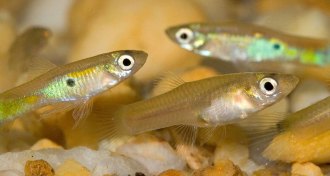 Life
LifeUnhelpful adaptations can speed up evolution
Unhelpful changes in gene activity stimulate natural selection.
-
 Health & Medicine
Health & MedicineMicrobes make the meal, new diet book proposes
Researcher Tim Spector skewers conventional thinking about weight loss in ‘The Diet Myth’
By Meghan Rosen -
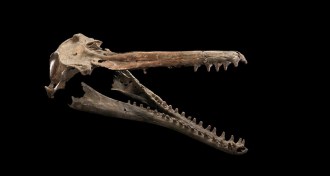 Paleontology
PaleontologyNew dolphin fossil makes a splash
A newly discovered dolphin fossil provides clues to the evolution of river dolphins in the Americas.
-
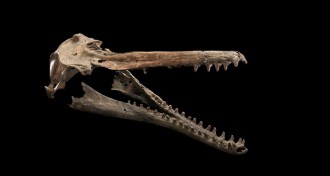 Paleontology
PaleontologyNew dolphin fossil makes a splash
A newly discovered dolphin fossil provides clues to the evolution of river dolphins in the Americas.
-
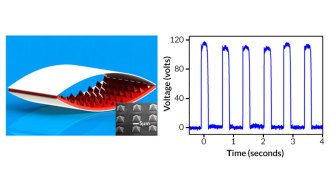 Materials Science
Materials ScienceNanogenerators harvest body’s energy to power devices
Nanogenerators offer body-harvested energy to fuel bionic future
By Beth Mole -
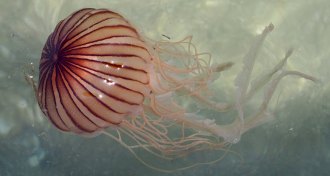 Animals
AnimalsSome jellyfish sting deeper than others
A new study shows that some jellyfish have nematocysts that can sting deep into the skin. That may explain why their sting is so painful.
-
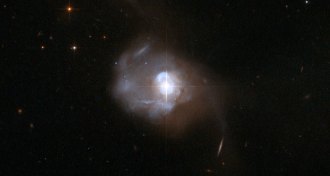 Astronomy
AstronomyNearby quasar may be home to dynamic duo
A pair of black holes left over from a galaxy collision might live in the nearest quasar to Earth.
-
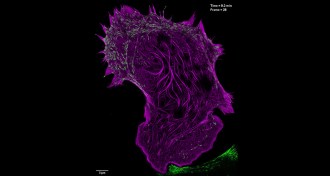 Life
LifeNew microscope techniques give deepest view yet of living cells
Two new microscopy techniques are helping scientists see smaller structures in living cells than ever glimpsed before.
-
 Life
LifeNew microscope techniques give deepest view yet of living cells
Two new microscopy techniques are helping scientists see smaller structures in living cells than ever glimpsed before.
-
 Science & Society
Science & SocietyHow dollhouse crime scenes schooled 1940s cops
In the 1940s, Frances Glessner Lee’s dollhouse murder dioramas trained investigators to look at crime scenes through a scientific lens.
-
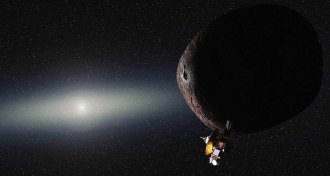 Planetary Science
Planetary ScienceLife after Pluto: New Horizons to head for Kuiper belt boulder
The New Horizons spacecraft has a second target in the Kuiper belt: an icy boulder dubbed 2014 MU69.